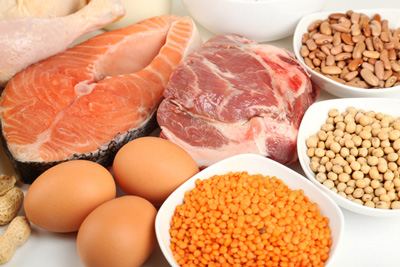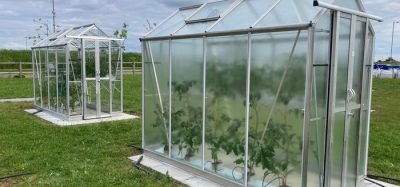Putting sustainable protein on the dinner table
- Like
- Digg
- Del
- Tumblr
- VKontakte
- Buffer
- Love This
- Odnoklassniki
- Meneame
- Blogger
- Amazon
- Yahoo Mail
- Gmail
- AOL
- Newsvine
- HackerNews
- Evernote
- MySpace
- Mail.ru
- Viadeo
- Line
- Comments
- Yummly
- SMS
- Viber
- Telegram
- Subscribe
- Skype
- Facebook Messenger
- Kakao
- LiveJournal
- Yammer
- Edgar
- Fintel
- Mix
- Instapaper
- Copy Link
Posted: 8 March 2016 | Simon Billings, Principal Sustainability Advisor, Forum for the Future | No comments yet
How are we going to feed 9 billion people enough protein by 2040, in a way that is healthy, affordable and good for the environment? In this blog piece, Simon Billings calls on industry to join The Protein Challenge 2040 to transform the future of protein…


This week Forum for the Future launches The Protein Challenge 2040. It is the culmination of a year of enquiry by a really unusual coalition of food companies, retailers, feed companies and NGOs into what we like to call the big protein question: How are we going to feed 9 billion people enough protein by 2040, in a way that is healthy, affordable and good for the environment?


It’s a tough question, and one that we have grappled with together over long hours reviewing past research and evidence, meetings and discussions – both in the office and over the dinner table at home.
Having worked with 200 stakeholders across the protein system and read countless research reports, it was clear that our future food security is an issue that people are very passionate about. It was also clear that polarized discussions were getting in the way of progress. Different types of protein sources were labelled ‘good’ or ‘bad’, effectively preventing people from finding a common way forward.
Through these conversations, we discovered organisations that were working toward more sustainable protein in different ways. Some were exploring sustainable nutrition, others were investigating which future protein sources to get behind. Realising the complexity of the issues and the number of different protein sources – not just animal to plant, these organisations saw the benefits of joining forces for the first time – hence the formation of The Protein Challenge 2040.
Read the summary report document
During the past year, we’ve worked hard to map the entire protein system, something that has never been done before. The issues within the system are very complex:
Balancing access to good nutrition with sustainable production
Some nutritionists we spoke to were perplexed. Protein is essential for human health, but why were some people labelling it ‘bad’? There are great inequalities of access, with some of us eating more than sufficient protein, with others facing a serious lack, and both sets of circumstances are associated with major health risks. And, not all sources of protein are the same in terms of how much nutrition they provide and how much impact their production has on the environment. Some sources of protein are resource-intensive and have many environmental impacts such as greenhouse gas emissions, heavy water consumption and habitat destruction.
Complex interrelationships
The protein system comprises the animal, plant and alternative protein industries and all their value chains are very deeply linked. Over 50% of good quality plant protein grown is fed to animals and a good proportion of wild-caught fish is fed to farm animal and fish. The protein system is over-dependent on soy for animal feed, and the cultivation of soy in turn drives deforestation. So it’s not simply enough to find more sustainable ways of growing a crop, it’s also about finding alternatives and tackling demand.
Changing diets
As we struggle to feed 9 billion demand for protein will only grow, and much of the demand will be for animal protein. So we do need to address consumer diets and consumption, as well as looking at the diets of those animals themselves. And, as any retailer can tell you, trying to influence consumer behaviour is never easy!
The Protein Challenge 2040 steering group comprises some visionary companies that recognise this complexity and the challenges ahead. With Forum as independent facilitators of the coalition, the group worked to identify the solutions that the protein system can take collective action on now, in order to catalyse the greatest change and shift the system onto a more sustainable path.
Using future scenarios to test the system in different possible worlds and working with over 200 experts and innovators in London, New York, Rotterdam and San Francisco, we have identified six areas for innovation and action. We agree that we do need to have a better balance of proteins from plants rather than animal sources and we do need to scale game-changing alternatives to animal feed, as well as tackling the loss of protein-rich waste across the system. Most importantly, we recognise the world needs to focus on protein, now.
This isn’t a report on problems in the food system. It is an invitation for you to join us in transforming the future of protein together. If you have the expertise, knowledge and resources to drive forward the solutions in these areas, we want to hear from you. We’re beginning a new journey together looking for other businesses, entrepreneurs and experts who will help us go further and faster. Does that sound like you?
Get in touch: [email protected]







